Profile
Mr Julius Osai, philanthropist, businessman extraordinaire

There are occasions ordinary things that people do eventually become examples for generations to emulate.
While some had unknowingly encountered ‘angels on earth’ and offered assistance to them in diverse ways, others on the contrary, acted callously to people without considering their social standings and never considered their social standing.
Mr Julius Osai, a businessman, an extraordinary philanthropist, and the sole newspaper vendor at Kpando, in the Volta Region, and the Managing Director of Josaco Enterprise is committed to assisting people in need and, this has attracted the attention of The Spectator.
It was announced during a thanksgiving church service at Kpando that Mr Julius Osai looked after a bed-ridden relative for 29 years. He literally gave out money to the immediate family of the sick on every market day- which meant two times a week- multiplied by 29 years.
At the beginning of the interview, he pleaded with me that the financial assistance he had offered the relative should be expunged from the profile to which l had initially agreed.
Having pondered over the issue, l explained to him that it was essential to mention this act of kindness since it could serve as an example for others to emulate.
When asked to dilate on the sort of assistance he had rendered , he said he considered it a responsibility to support the sick relative. He intimated that he occasionally reviewed the amount he gave out throughout the period, and ordered his staff to release the money to the family whenever he travelled.
The philanthropist disclosed that there were other less-privileged in the society who were also beneficiaries of his magnanimity.
His late grandfather, Mr Alfred Osai, a successful merchant who traded between Lome, Kpalime and Kpando, was one of the first people to be baptised at the Immaculate Conception Catholic Church, Kpando .
Mr John Osai, his father, also of blessed memory, played commendable roles by assisting all manner of people including needy-but-brilliant students in the family and those outside his family.
Businessman
The then young entrepreneur joined the family business in 1970 and having been taught the rudiments of the work by his father, took over the daily running of the business while his father played a supervisory role.
Mr Osai who sells building materials and has a staff of 15 said working as an entrepreneur provided him the opportunity to deal with different kinds of people.
He took stock of his goods which were sold out by the close of the day to enable him to know the items which were out of stock and needed to be replaced.
The businessman disclosed that honesty was necessary to keep an entrepreneur in business. According to him, there were occasions some traders credited goods from suppliers, but failed to pay as they had promised, and would rather go to different suppliers to transact business with them.
He said such a behaviour had rendered some people not trustworthy, leading to the collapse of their businesses.
Mr Osai was of the view that good businessmen and women were those financially disciplined, dealt politely with customers, monitored the market environment, and provided fast-moving goods for customers.
Family traits
It is refreshing to note that specific traits which are easily identified with some families have literally flowed through the generations.
His late grandfather , Mr Alfred Osai, from whom his father took over the business, was very instrumental in the building of the Immaculate Conception Catholic Church at Kpando.
Following that line, his father served many years as the treasurer of the church.
And like his father, Mr Julius Osai also served on the Parish Pastoral Council as the Treasurer of the church for eight years. In addition to that, built an Adoration Chapel for the Immaculate Conception Catholic Church at Kpando.
Youth
Passionate about the spiritual growth of the people in the church, he has advised the youth specifically to be honest in their dealings and eschew the ‘get rich quick ‘ attitude.
He explained that many of those in responsible positions today had toiled many years to make it in life, and bear in mind that with God all things were possible.
Mr Osai urged the youth to concentrate on their education, adding that life had availed them of options to enable them to decide on which path they want to follow.
“Respect the admonision of the elderly, remain submissive to your parents and all in authority, and learn to love and serve God in humility,”
He said it was unfortunate that some customers would not live up to their promises and tried to pull fast one on him.
Family Life
Mr Osai is married to Mrs Peace Petrey Osai and has five children.
His current succession plan is to train a nephew to man the shop when he becomes feeble and tired of work.
Hobbies
For his pastime he takes delight in watching football, listening to cool music and enjoys eating Akple with any palatable soup to accompany it.
By Raymond Kyekye
Profile
From dormancy to dominance: Rev. Emmanuel D. Niikoi’s inspiring netball journey
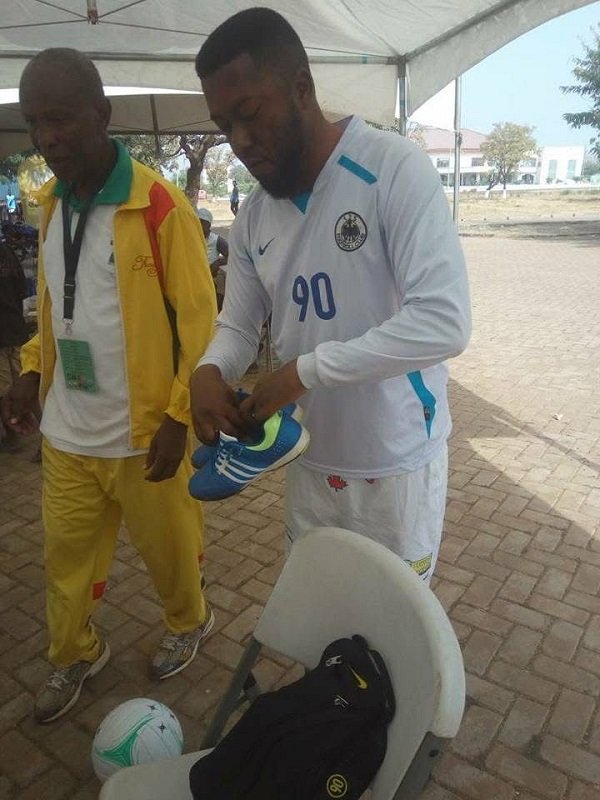
IN the annals of Ghana’s sporting history, certain individuals stand out not merely for participating in sport, but for transforming it.
Rev. Emmanuel D. Niikoi is one such figures. Revered as the father of modern netball in Ghana, is widely credited with rescuing the game from near extinction and transforming it into a vibrant, structured and nationally recognised sports discipline.
His journey reflects vision, resilience and an unwavering commitment to youth and sports development.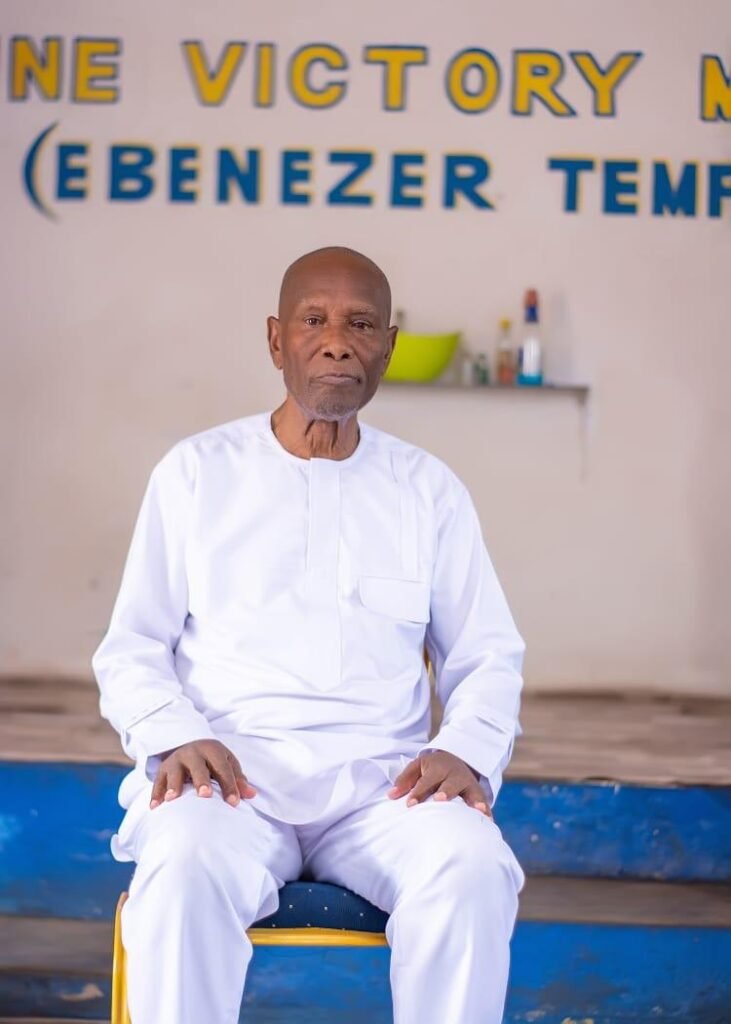
Netball was introduced to the then Gold Coast by Christian missionaries alongside formal education. By the 1960s and early 1970s, the sport had gained remarkable popularity in schools and colleges, ranking second only to football and, in some institutions, rivaling it in appeal.
However, during the 1974/75 academic year, the Ghana Education Service (GES) took a policy decision to step down netball in favour of basketball development. The decision dealt a severe blow to the sport.
Between 1975 and 1985, competitive netball virtually disappeared from Ghana’s sporting calendar.
That decision of the GES can be blamed for the current state of the sports that is producing heroines across the globe.
The revival of the game can be traced to 1985 during the Golden Jubilee celebration of the Ghana Broadcasting Corporation (GBC).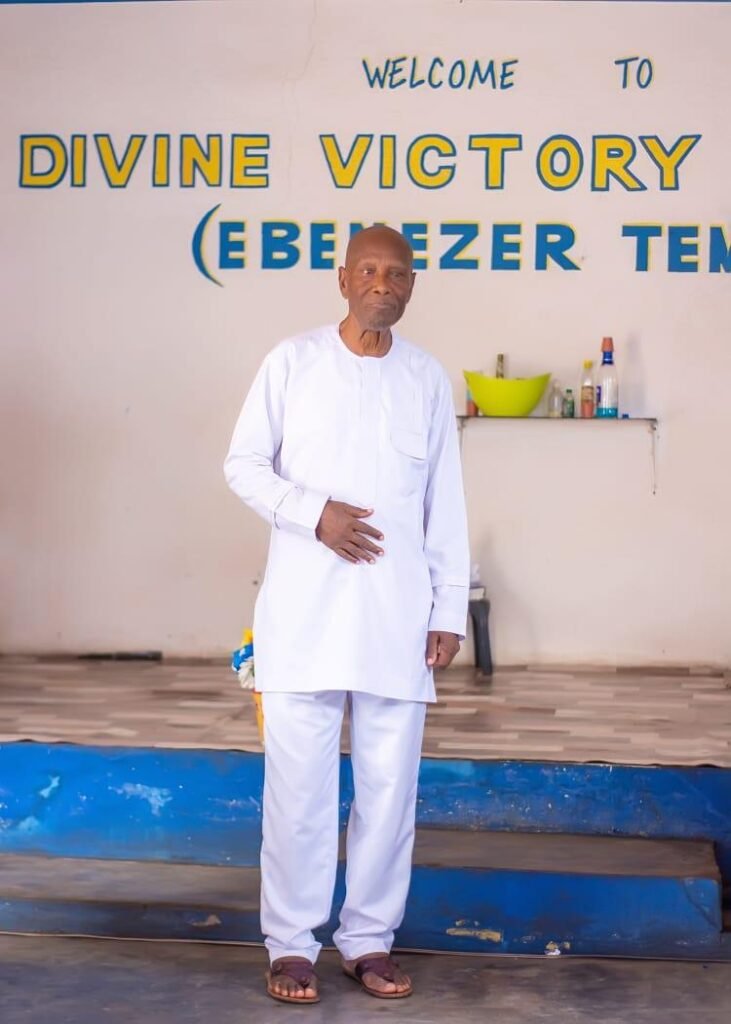
At the time, Rev. Niikoi was serving as Chief Editor (News) in the Radio Newsroom. Understanding both the historical importance and untapped potential of netball, he championed the inclusion of a netball tournament as part of the anniversary celebrations. The event reignited public interest and reminded many of the sport’s former glory.
Crucially, Rev. Niikoi did not allow the momentum to fade after the festivities. The GBC netball team formed for the tournament, aptly named “Golden Hands,” became the cornerstone of a national revival campaign.
With determination and personal sacrifice, he led tours across the country, using the team as a practical training platform.
He personally taught sports teachers under the GES the official rules of netball, reintroduced structured competition, and restored confidence in the sport’s viability.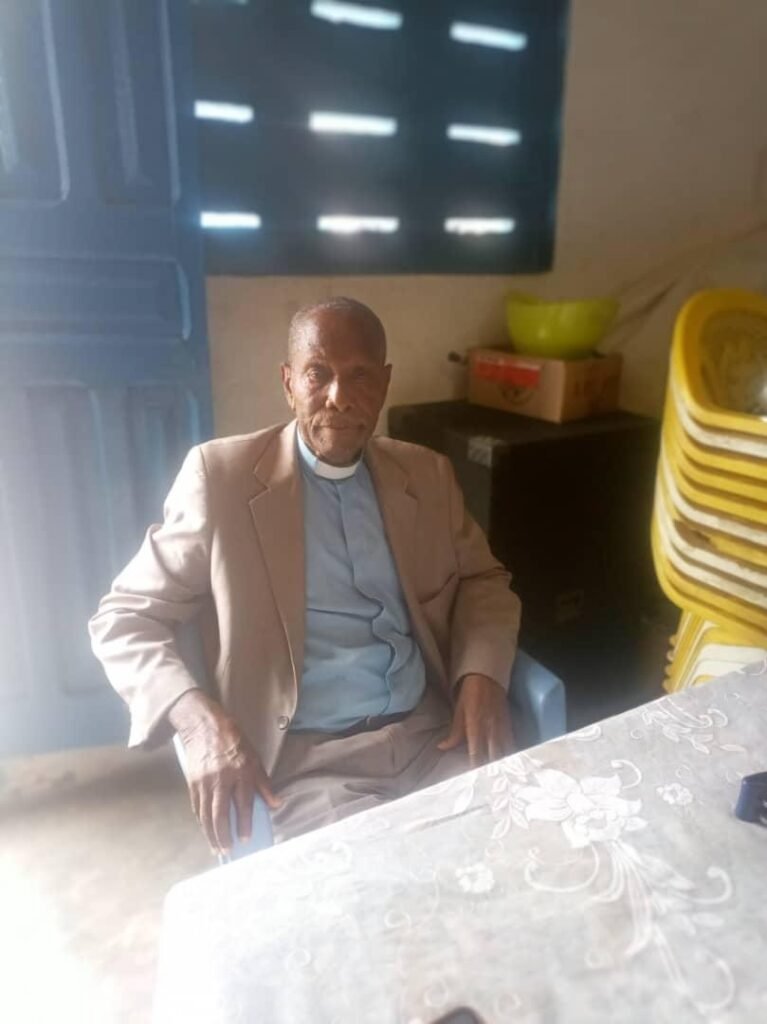
These efforts culminated with the formation of the Netball Association of Ghana in 1988, now known as the Netball Federation of Ghana.
In 1990, the association gained formal recognition from the National Sports Authorities, previously known as the National Sports Council (NSC), restoring netball’s status as an official sporting discipline.
This milestone marked the rebirth of organised netball in Ghana and cemented Rev. Niikoi’s place as founder of the national governing body.
Revival soon transitioned into consolidation. Over the years, Rev. Niikoi consistently lobbied educational and sports authorities to reintegrate netball into major school competitions.
His advocacy led to the sport’s reintroduction into the National Basic Schools Sports Festival, the Senior High and Technical Schools Sports Festival, the Colleges of Education games, and competitions under the Ghana University Sports Association (GUSA).
Today, netball is played across the entire educational structure in Ghana, from basic schools to public universities, a testament to his sustained and strategic efforts.
On the continental and global front, Ghana is a full member of World Netball and was a founding member of the Confederation of Africa Netball Associations (CANA), now Africa Netball.
In 2004, Ghana hosted the inaugural Africa Netball Cup of Nations in Accra and emerged champions after defeating Namibia in the final. The victory not only boosted Ghana’s sporting image but also validated years of groundwork.
In 2007, Rev. Niikoi was elected Director of Marketing and Media for CANA, serving a four-year term and contributing to the sport’s development across the continent.
In 2019, following governance reforms required by the International Olympic Committee to lift sanctions related to state interference in sports administration, national federations were mandated to adopt independent constitutions. Under this new framework, the Netball Federation of Ghana successfully drafted its constitution and conducted elections.
On June 19, 2019, Rev. Niikoi was elected the federation’s first President under the independent constitutional order which is symbolic and deserved recognition of decades of service.
Beyond netball administration, Rev. Niikoi also served two terms spanning eight years from March 2018 to March 2025 as an Executive Board Member of the Ghana Olympic Committee.
His presence on the board ensured that netball maintained visibility within Ghana’s broader Olympic movement.
A Bachelor of Arts graduate in Combined Honours (History and Law), Rev. Emmanuel D. Niikoi has trained numerous coaches and umpires nationwide, strengthening the sport’s technical foundation and ensuring sustainability.
His leadership style combines administrative discipline with grassroots engagement, making him both a strategist and a mentor.
From dormancy to dynamism, the resurgence of netball in Ghana bears his unmistakable imprint. Through advocacy, institution-building and capacity development, Rev. Niikoi has secured a lasting legacy.
Today, every netball match played in Ghana, whether at a basic school court or a university festival stands as living testimony to his vision and perseverance.
By Esinam Jemima Kuatsinu
Profile
Autism Awareness Care & Training: Pioneering autism care, inclusion in Ghana
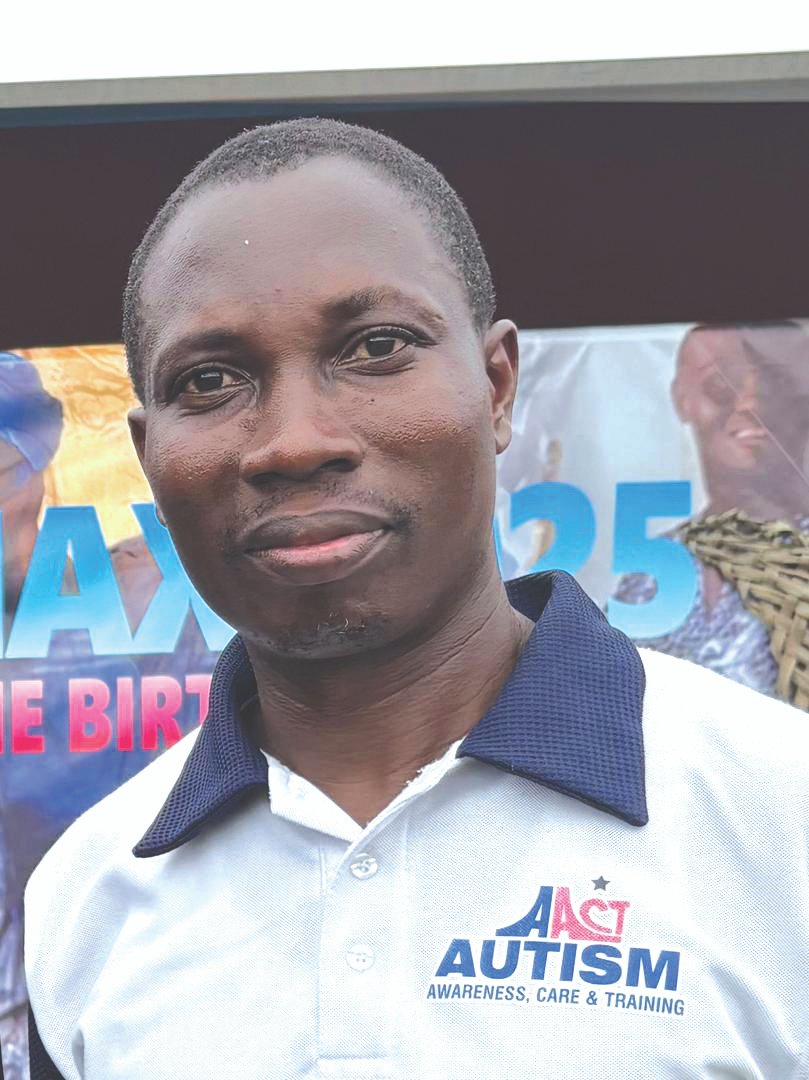
AUTISM Awareness Care and Training (AACT) is Ghana’s first autism-focused centre, playing a pioneering role in the care, education, and advocacy for children on the autism spectrum and their families.
Established in 1998, AACT began as a parent-support and training initiative at a time when autism was poorly understood in Ghana. Many families raising autistic children faced stigma, isolation, and limited access to information or professional assistance.
Over the years, the organisation has evolved into a full-fledged autism care and training centre, responding to the growing demand for specialised services and sustained nationwide awareness.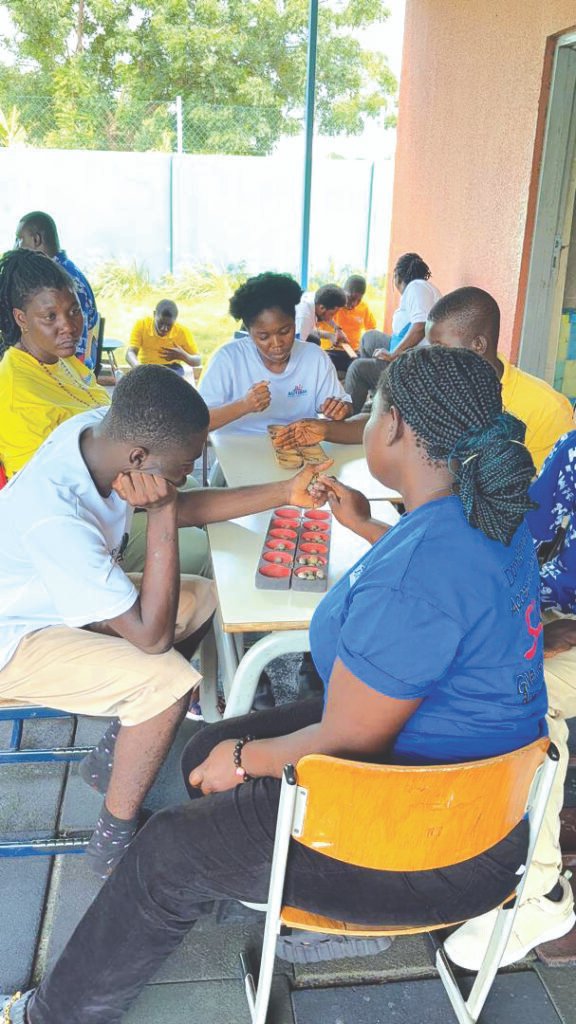
AACT is currently located in Haatso, Accra, where it operates a structured day programme serving about 25 learners daily. The centre provides a safe, inclusive, and supportive environment where children with autism are guided to develop essential life, social, and functional skills.
Programmes at the centre focus on independent living skills, vocational and pre-vocational training, functional academic skills, and therapeutic interventions. These activities are tailored to the individual needs of each learner, recognising that children on the autism spectrum learn and develop at different paces.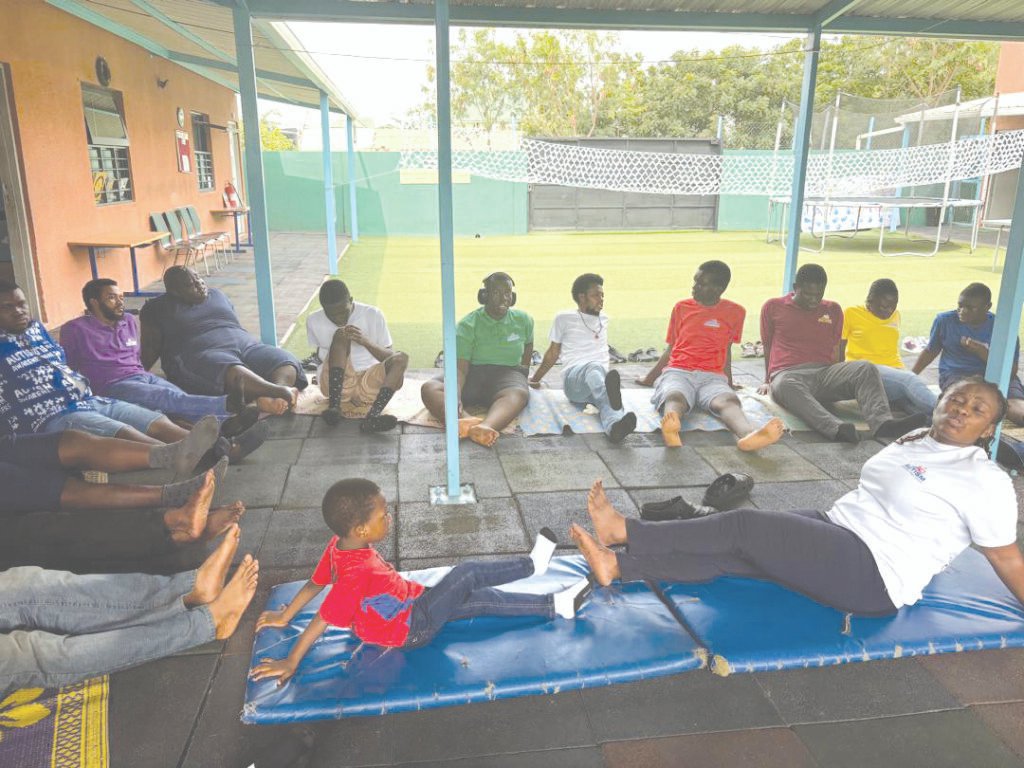
According to Abeiku Grant, Head of Programmes at AACT, the centre’s philosophy is centred on ability rather than limitation.
“Every autistic child is different,” he said. “Our work is to support them at their own pace and help them discover what they can do, not to focus on what they cannot do.”
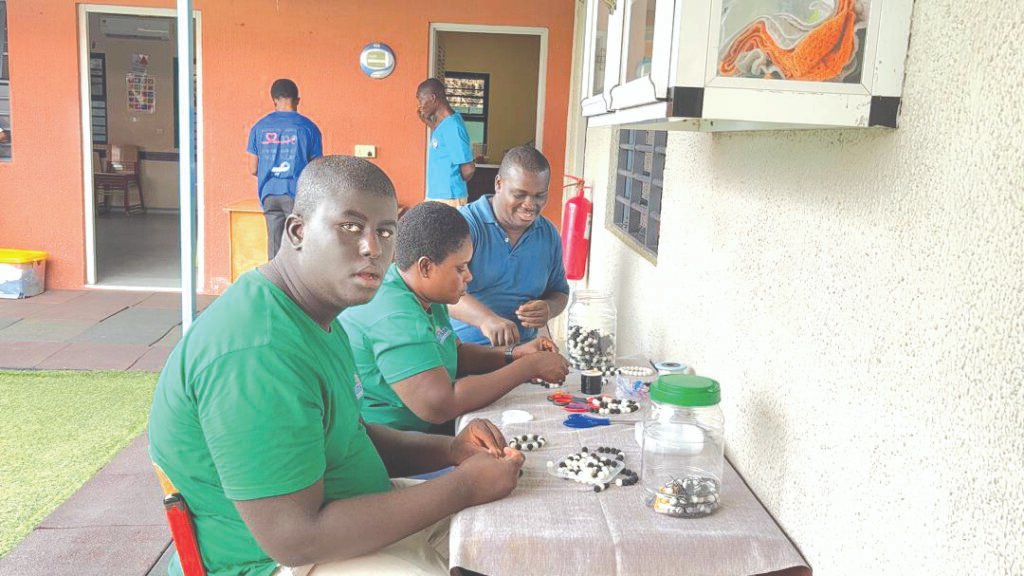
Beyond centre-based services, AACT places strong emphasis on autism awareness and advocacy, particularly within schools and communities. Many children with autism in Ghana continue to face rejection and exclusion due to stigma, misinformation, and the lack of trained personnel in educational institutions.
In 2025, AACT reached over 20 schools across the country, providing autism education to teachers, students, and school administrators.
The organisation also runs free teacher training programmes, equipping educators with practical knowledge and basic tools to support autistic learners in inclusive classroom settings.
“Many schools tell us they are not resourced or trained to handle autistic learners,” Mr Grant explained. “Instead of waiting for change, we decided to go to them and train teachers for free.”
AACT also engages learners directly, addressing widespread misconceptions about autism, including the false belief that autism is contagious or caused by bad parenting. These outreach programmes aim to build empathy among students and promote peer support for autistic learners in mainstream schools.
Another major challenge confronting families is limited access to autism services, especially outside Accra. With most autism centres concentrated in the capital, many families from other regions are forced to travel long distances or keep their children at home due to cost, stigma, or lack of support.
“Education is not meant only for typical children,” Mr Grant stressed. “Children with autism also have the right to education and care. No child should be hidden because of lack of understanding or opportunity.”
As part of its outreach work, AACT supports parents to overcome stigma and encourages social interaction for children with autism, believing that community engagement is essential for development and confidence building.
In December 2025, the centre received what it described as its largest donation of the year, raised by children from the Unmasked Mentoring initiative. According to the organisation, the donation was particularly significant as it demonstrated empathy and social responsibility among young people.
As a non-governmental, non-profit organisation, AACT depends largely on donations, partnerships, and goodwill to sustain and expand its work. Current needs include a minibus for community-based social activities, expansion of its facility to accommodate more learners, sponsorship support for children from financially challenged families, and funding to scale autism awareness programmes nationwide.
Looking ahead, AACT envisions a Ghanaian society that is inclusive, informed, and supportive of persons with autism.
“Our goal is a Ghana where children with autism are accepted and supported,” Mr Grant said. “Every child has potential. All they need is understanding, opportunity, and care.”
By Esinam Jemima Kuatsinu







